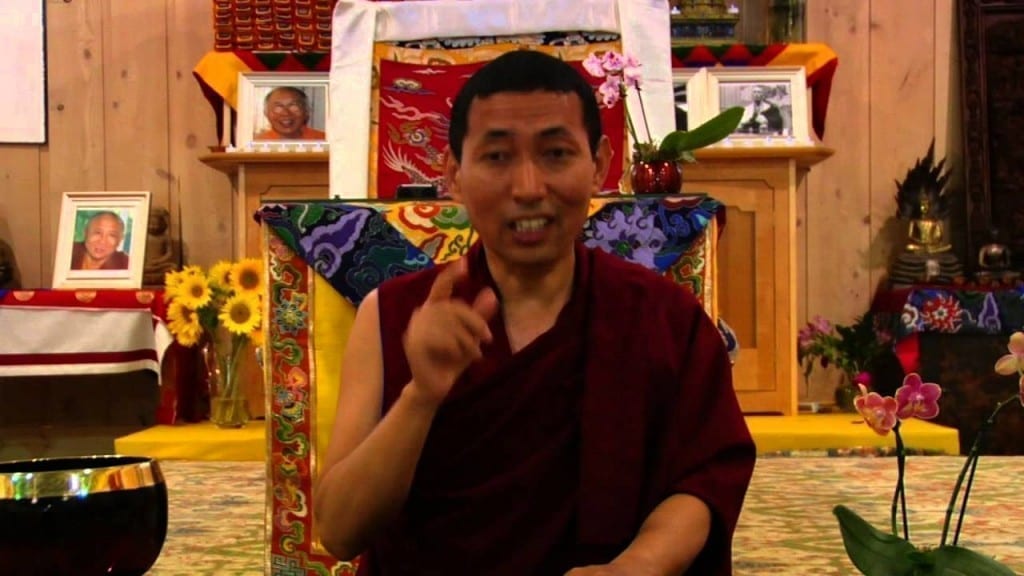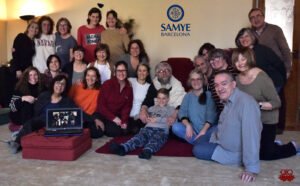Beginning with Small Steps
Mind training sounds a little sci-fi at times. But, what do we really mean when we speak of mind training in Buddhist terms? At first, it can sound very complicated and too much for us to handle, but we have to understand how to begin. Here, Tulku Migmar Tsering shares practical advice on how we can train our minds and develop true mindfulness in our daily lives.
First Steps
First, he reminds us to start with basics—for example, speaking kind words and watching our behavior. He explains that we do not have to go to a solitary place and be in retreat in order to train our minds. Tulku-la suggests that we start close to home, by training within our own families. Slowly, this habit of speaking kindly and behaving well will become ingrained, and we will naturally extend that behavior out to wider and wider circles.
Use Whatever Situation We Find!
Tulku-la then gives a practical and amusing personal example of dealing with a stuck door lock—an image that we can easily imagine! Tulku-la walks us through his own thought process and explains how we can use mindfulness techniques to change our reactions.
We can slowly begin to change our habitual patterns and fully integrate our practice into our daily lives. His simple story can help us to reflect on the many opportunities for practice we can find throughout our day. His advice helps us to be gentle with ourselves and appreciate the small adjustments and a slow but steady approach that brings great benefit.
Reflection Exercise
- Throughout the following days, try to think about this locked door story and recall it during moments of potential difficulty in your own experience. Can you “catch yourself” as you start to react—and can you see how you can use mindfulness to change your habitual reactions?
- Describe the situation, and see how you flipped the situation by changing your patterns. It may help to keep a journal for a period of time—write down these experiences, and then see how you’re making progress by changing your own habits.
- Or, if you see now that you might have had an opportunity to train and didn’t—what would you do differently now? For example, if you got stuck in traffic, or waiting in a line, can you think of new alternatives to your customary behavior?
- How many opportunities for mind training did you find in a single day—or during this past week?










Responses